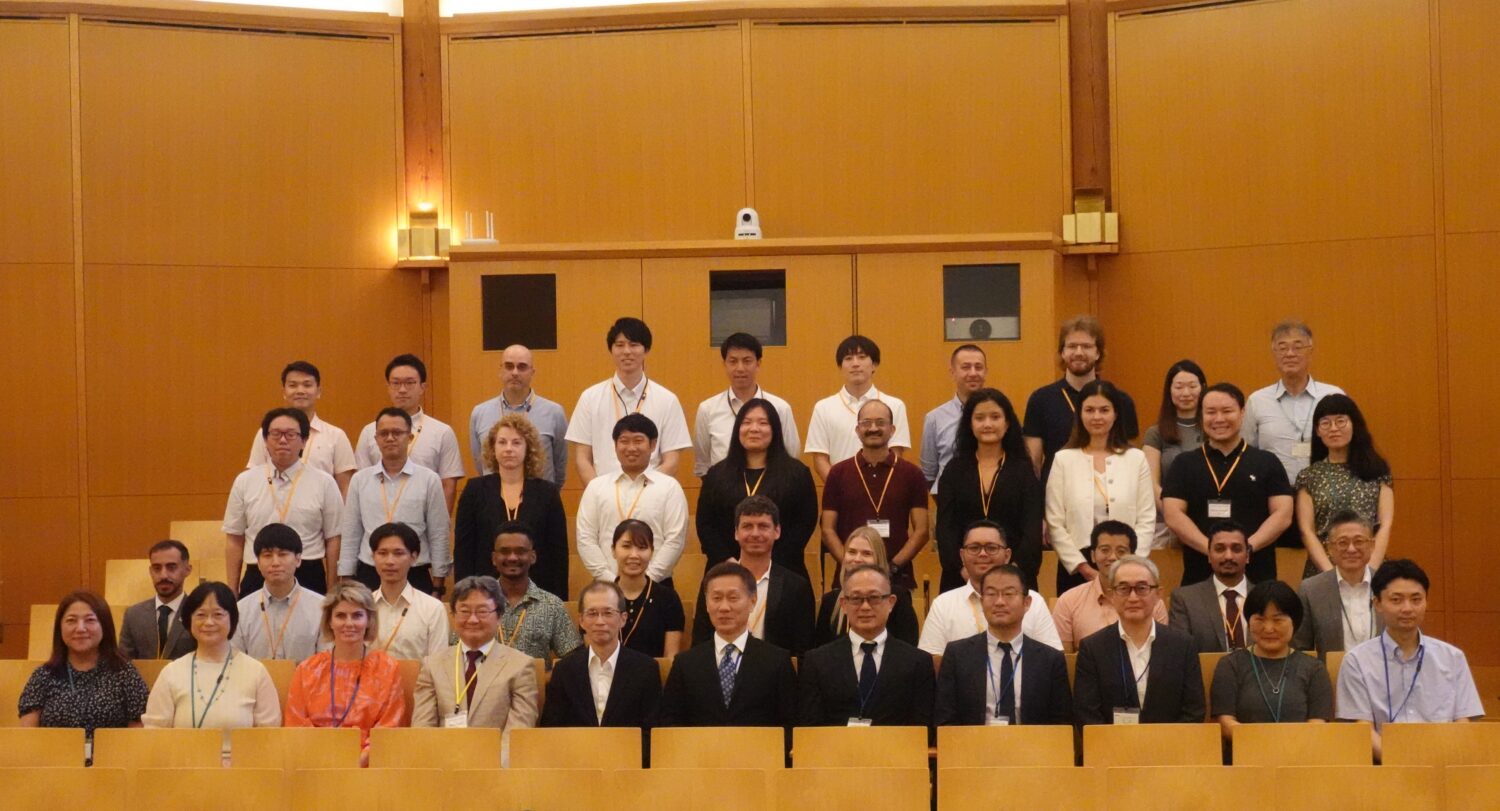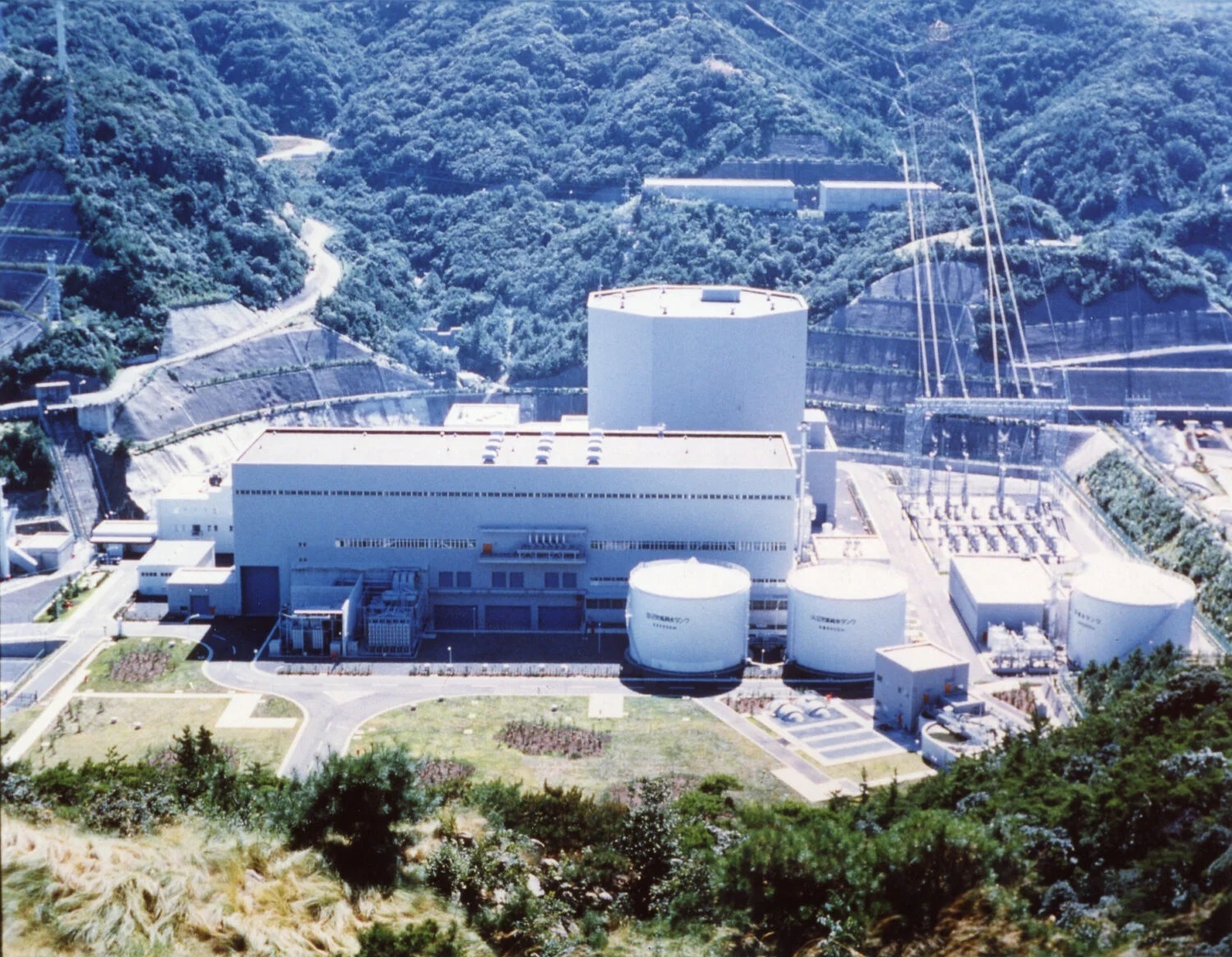Meanwhile, at a regular meeting earlier the same day, the NRA had decided to order JAEA to submit a mandatory report under the relevant laws regarding incomplete inspections at the prototype fast breeder reactor (FBR) “Monju,” and to question it later.
At the meeting with NRA representatives, JAEA President Kodama described his organization’s activities to secure safety, as well as activities to “ferment” and cause safety culture to permeate.
He also spoke about the JAEA’s safety studies, efforts toward human-resource development and information dissemination, and international cooperation. In addition, he mentioned his organization’s contributions toward improving nuclear safety across Japan through the disposal of research facility waste.
Kodama also explained about specific individual issues, including the compliance of a test reactor with the new regulatory standards, measures for aging facilities, the handling of the Tokai Reprocessing Facility, and back-end measures.
According to a report on intensive reforms drawn up by JAEA in September 2014, it had almost completed all the transfer of technology from its Tokai Reprocessing Plant in Tokai, Ibaraki Prefecture, to the Rokkasho Reprocessing Plant of Japan Nuclear Fuel Ltd. (JNFL) in Aomori Prefecture.
Still remaining, however, was un-reprocessed spent mixed uranium-plutonium oxide (MOX) fuel from the prototype advanced thermal test reactor “Fugen,” which is not a light water reactor.
Given that more than JPY100 billion (USD833 million at USD1=JPY120 ) would be required to modify the plant to meet the new regulatory standards, which would allow it to continue to operate and complete the reprocessing, JAEA is considering submitting an application for the approval of its decommissioning plan during its next medium-term target period (starting in the current fiscal year), with the un-reprocessed MOX fuel to possibly be reprocessed overseas.
JAEA presented a diagrammatic schedule of the tasks ahead for the plant to meet the new regulatory standards and shift to decommissioning, including reducing risks related to the Tokai Reprocessing Plant and promoting waste treatment.
NRA Commissioner Toyoshi Fuketa pointed out the risks from high-level radioactive liquid waste held at the plant, saying that his organization wanted JAEA to “visualize” how much work would be required in the future, urging it to make the proper allocations of resources internally.
NRA Commissioner Nobuhiko Ban—who had referred at a September 24 press conference, upon taking office, to the need to ensure human resources in the nuclear and radiation fields—said that the approach to educating employees should be different according to sector, individual and ability. He added that it was “important to determine precisely what is needed” in each situation.
Recognizing JAEA’s integration and prioritization of facilities to ensure management resources, Ban said he was concerned that people would lose their motivation to become leaders if facilities were eliminated. In response, JAEA President Kodama said that “it would be like triage,” indicating his awareness of the challenges his organization faces.
Exchanges of opinions between the NRA and operators, begun last autumn, have been conducted with the ten power companies in the country having nuclear power plants in service, in addition to JNFL and JAEA. NRA Chairman Shunichi Tanaka said that his organization would consider a second round of opinion exchanges.















